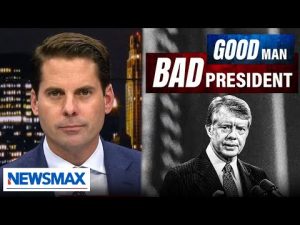A recent analysis of the FBI’s efforts over the last few years has raised some serious eyebrows among Americans. It seems that the federal agency, which many believe should be focused on stopping crime, might have misplaced its priorities. With a staggering resource allocation—reportedly 5,000 agents deep into investigations stemming from the January 6th Capitol incident—critics are questioning whether this reflects effective law enforcement or an excessive exercise in political maneuvering. Some observers, including social media magnate Elon Musk, have labeled this resource frenzy an “insane misallocation.”
Leading this chorus of skepticism is Christopher Wray, the FBI director who, some say, is struggling to distance himself from the agency’s controversial past. As former officials like Kash Patel increase their scrutiny, the current director’s attempts to redefine the FBI as merely a crime-fighting organization feel, to many, like nothing more than a public relations campaign. His reassurances that the bureau is “focused on the mission” ring hollow to those who believe the agency has overlooked significant threats while obsessively pursuing political adversaries.
It appears that the FBI may have directed its energies toward making examples of law-abiding citizens and investigative overreach instead of targeting serious criminals. Incidents wherein federal agents deployed SWAT teams to confront individuals with no criminal record have added fuel to the accusations of an overreaching bureau. Meanwhile, the FBI continues to assert its focus on crime fighting, even as local law enforcement often handles significant arrests, leaving many to wonder what the FBI is really accomplishing.
For instance, the FBI recently touted the arrest of a fugitive connected to heinous crimes; however, it was local police who actually apprehended the suspect. When an agency begins taking credit for work done by others, it raises the question: what else might they be exaggerating? Add to this the fact that for the last eight years, they seemed more preoccupied with investigating political rivalries and internal scandals than addressing the nation’s serious drug and crime problems. A new addition to the Ten Most Wanted list should send alarm bells ringing, with one suspect accused of flooding the country with dangerous narcotics over two decades—yet where has the FBI been in all that time?
Perhaps more than anything, this moment reflects a growing distrust in federal institutions that claim to serve the public. Critics argue that instead of fostering community safety, figures like Wray imply a selective enforcement strategy aimed more at appeasing political narratives than achieving justice. As those in power attempt to redefine the narrative, informed citizens remain skeptical and demand accountability for actions taken during a charged political climate.
As the country gears up for future elections, the potential fallout from the FBI’s choices may have lasting ramifications. If the bureau wants to regain the public’s trust, it will need to seriously reconsider its priorities and refocus on serving the American people. The question remains whether they are prepared to pivot from their current course and prove that they can be the crime-fighting organization they claim to be. In a world where credibility is crucial, transparency and accountability have never been more essential for the FBI and its leadership.



